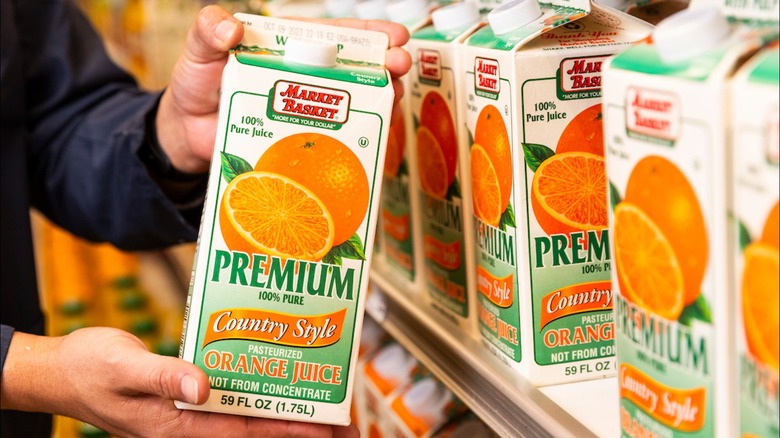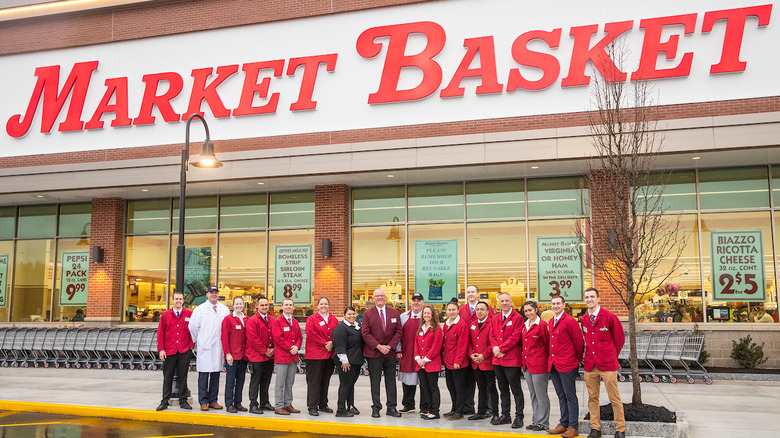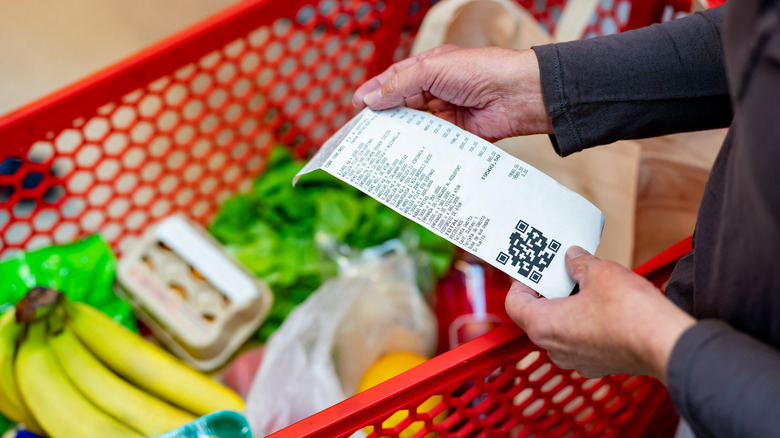The Tiny Grocery Chain That Beats Inflation Like No Other
Finding an affordable grocery store is one of life's great challenges. Sure, it might pay to buy beer at Whole Foods, but most items there will eat up your paycheck in no time. Chances are, unless you live in Southern New England, you have probably never heard of one of the country's most affordable supermarkets. That store is Market Basket, a chain in the greater Boston area that inspires fierce loyalty in both its customers and its workers.
In fact, Market Basket keeps its prices so low that it goes toe-to-toe with much larger competitors like Aldi and Walmart. In 2022, the consumer data firm Dunnhuby compared over 60 grocery chains to see how they handled inflation. The study focused on each supermarket's affordability, but it also took into account other factors such as item quality.
After tabulating all these features, Market Basket took the top spot and was declared the best grocery store to visit during times of inflation. Aldi trailed the retailer in second place. So how did this relatively small chain beat out supermarkets with an international footprint? Let's take a look at Market Basket's colorful history to learn more.
The history of Market Basket
The story of Market Basket ranges from old-fashioned values to family struggles straight out of an episode of "Succession." The supermarket can trace its lineage to a store called DeMoulas Market, founded by married couple Athanasios and Efrosini Demoulas in 1917. The couple's store survived the Great Depression, and their two sons (George and Mike) took over. In 1971, George also passed, leaving Mike in charge.
The next generation of Demoulas children eventually found themselves in a protracted legal battle. In 2014, this battle exploded into the public spotlight. Arthur S. Demoulas wanted to sell the chain while Arthur T. Demoulas — who was CEO — wanted to retain control. Arthur S. had the backing of the board, but Arthur T. had the workers on his side. In fact, Arthur T. was so beloved by his workers that 5,000 of them went on strike to protest his firing.
Eventually, Arthur T. prevailed and remained at the helm of Market Basket. Under his continued stewardship, the chain has plotted a course forward that continues its well-paying employee benefits and keeps prices low. Although the workforce is not unionized, Market Basket employees enjoy impressive perks like a profit-sharing plan.
How Market Basket keeps its prices low
If you've ever wondered why Aldi's groceries are so cheap, then Market Basket's tactics will prove fascinating. One of the biggest ways Market Basket keeps its prices low is also one of the simplest: It pays its suppliers when the goods are delivered. Where other grocery stores pay their suppliers 30 to 90 days after a delivery; Market Basket pays as soon as the delivery is completed. This gives them more flexibility and bargaining power when negotiating prices.
The store also employs a high-volume merchandising model to ensure that its shelves are always stocked. Employees diligently restock shelves as customers remove items. Consistently having large amounts of merchandise on the shelves attracts shoppers who buy in bulk. The company also cuts operating costs wherever it can, which means eschewing loyalty programs and extraneous features.
Market Basket remains old-fashioned in many ways. For example, they didn't launch an official website until 2017, and they refuse to add self-checkout sections. In other ways, however, the company has adapted to the times by following customers' changing tastes and needs. This includes increasing the range of high-quality meats and vegetables available and offering more international options. At the end of the day, while Market Basket might not be one of the world's wildest supermarkets, it is certainly one of its most dependable.



